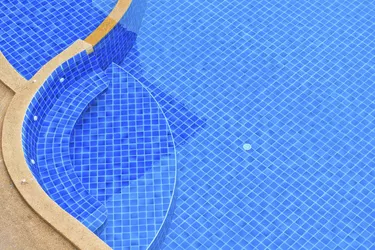
When determining the cost of an in-ground swimming pool, factor in the cost of the pool itself as well as installation costs and ongoing maintenance costs. Pool prices vary greatly depending upon the size, material and location of the pool. According to PoolandSpa.com, the average 2010 cost of a 16x32-foot in-ground pool ranged from $17,000 to $37,0000, depending upon the material used to construct the pool.
Pool Types
Video of the Day
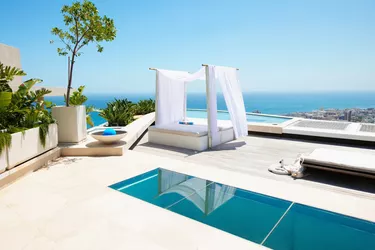
In-ground pools are made from vinyl, fiberglass and concrete. Vinyl pools are the least expensive option but last only about six years. Fiberglass and concrete pools can be comparable in cost. Fiberglass pools last longer than vinyl pools but break down very quickly once the gel coating cracks and the deterioration process begins. Concrete pools are the most common and longest lasting in-grounds, with a lifespan of 15 to 18 years. This lifespan can be extended if the inside of the pool is replastered. Concrete pools are the most customizable but, at an average of 12 weeks, take the longest to install.
Video of the Day
Installation Costs
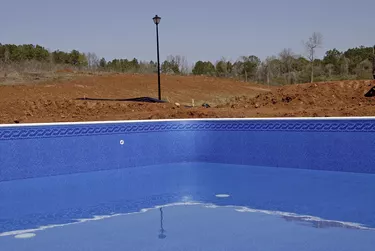
According to Popular Mechanics, the true cost of installing an in-ground pool can easily be twice the cost of the pool itself. Extra but necessary installation charges can include the cost of building permits, the marking of underground utility lines, soil removal, tree clearing and legally required pool fencing. A pool cover may also be necessary for pools that won't be used year-round. Handrails, ladders, lights, pool pumps, filtration systems, heaters and decking may all result in higher installation charges than anticipated. The cost of homeowner's insurance can also increase with the installation of a pool.
Ongoing Expenses
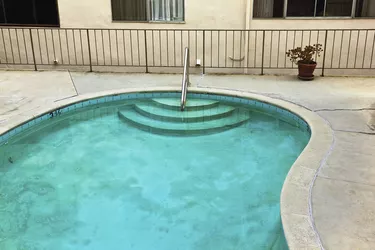
Once a pool has been installed, it must be maintained. Certain pool maintenance items, such as water test kits, chlorine and chemicals, are consumable and will need to be restocked upon occasion. Electric prices change, but, as of 2010, pool filters could increase an electric bill by $50 a month and even intermittent use of a pool heater could cost $500 over the course of a year. The bill also increases when water must be added to the pool. As the pool ages, leaks, cracks and equipment may require repair or replacement. Some prefer to hire professionals to manage the maintenance needs of their pool. In 2010, this service came at a cost of $1,500 to $2,000 a year.
Home Value
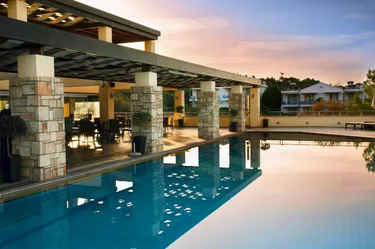
Though realtors agree that an in-ground pool can increase a home's value, the amount of increase can vary. If a house is the only one in the neighborhood with a pool, odds are the homeowner will ultimately lose money by adding a pool. In neighborhoods full of pools, however, the only home without a pool is likely to sell for much less than other homes in the area. According to MSN Money, in-ground pools add an average of 7.7 percent to a home's value, but location affects this number. A pool may increase a home's value by 11 percent in the southwest part of the country while only adding 6 percent in the Midwest. Even if a pool increases a home's value, it limits the home's market only to buyers willing to put time and money into the pool's upkeep.